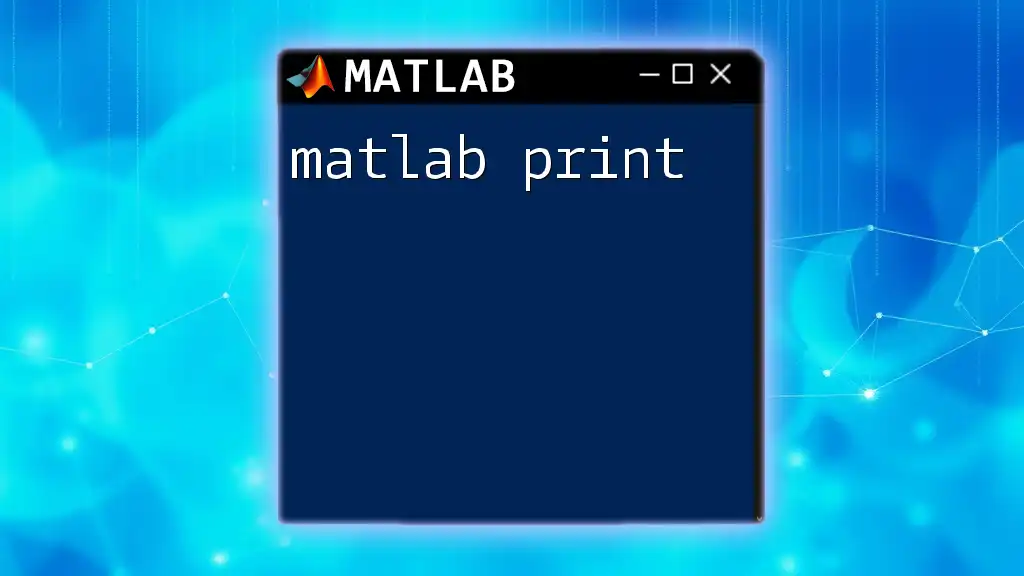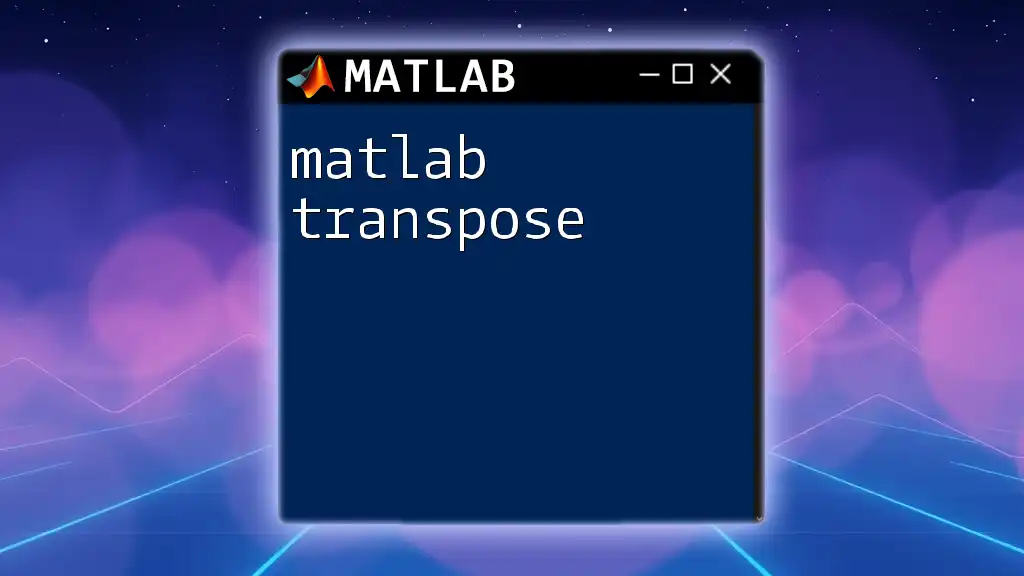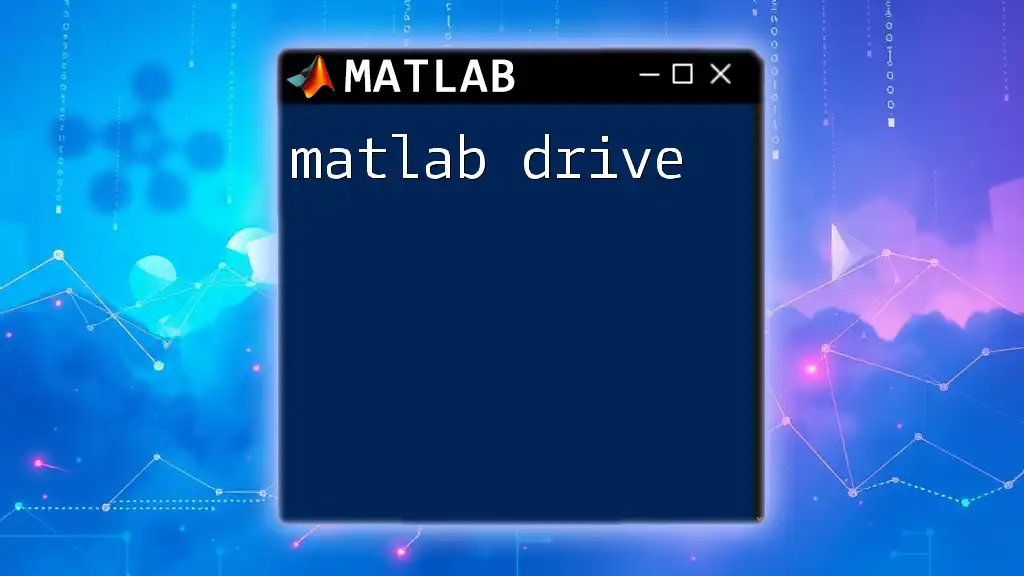In MATLAB, `x` typically represents a variable that can store data, and its use is key in various mathematical operations and functions.
Here's a simple example of how to define and display a variable `x` in MATLAB:
x = 5; % Assign the value 5 to variable x
disp(x); % Display the value of x
Understanding MATLAB X
What is MATLAB X?
MATLAB X is an enhanced version of MATLAB that includes a variety of tools and features aimed at providing a more user-friendly experience for both beginners and advanced users. Its significant functionalities include a simplified syntax for complex operations, an interactive environment conducive to rapid development, and a suite of built-in functions that cover a multitude of mathematical applications. Designed for quick execution and ease of understanding, MATLAB X is particularly valuable in fields such as engineering, data science, finance, and academia.
Key Benefits of Using MATLAB X
By adopting MATLAB X, users can experience several key advantages:
- Ease of Use for Beginners: With a user-friendly interface and straightforward commands, new users can quickly grasp the basics of programming concepts.
- Enhanced Productivity for Experienced Users: MATLAB X allows seasoned developers to write less code to achieve more functionality, thus boosting productivity.
- Versatility Across Various Disciplines: Whether it’s for image processing, machine learning, or control systems, MATLAB X can cater to a wide array of applications.

Getting Started with MATLAB X
Installing MATLAB
To start using MATLAB X, you need to first install the software:
- Download MATLAB from the official MathWorks website.
- Follow the instructions to install it on your system, ensuring you meet the required system specifications.
- After installation, launch MATLAB, and you can easily access MATLAB X from the home screen.
MATLAB X User Interface Overview
Navigating the MATLAB X interface is essential for maximizing your workflow. The key components include:
- Command Window: Where you can enter commands directly and see immediate results.
- Workspace: Displays variables you are currently using—allowing for easy data management.
- Editor: Used for writing scripts and functions, making it easier to organize and save your work.
- Command History: A log of all commands executed, which helps in recalling previous tasks or debugging.
Familiarizing yourself with these components can significantly speed up your learning process!
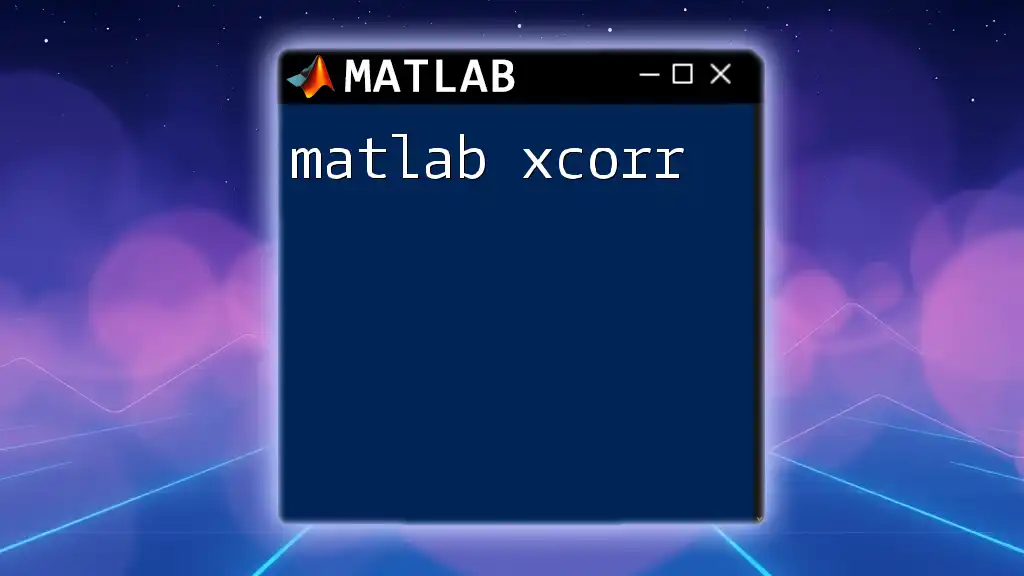
Essential MATLAB X Commands
Basic Commands for Beginners
Understanding fundamental commands is crucial when starting with MATLAB X.
Command 1: `disp()`
The `disp()` command is used for displaying output. Its simplicity makes it perfect for beginners.
disp('Hello, MATLAB!')
disp(42)
This command prints "Hello, MATLAB!" and the number 42 in the Command Window.
Command 2: `plot()`
Plotting is essential for visualizing data.
x = 0:0.1:10;
y = sin(x);
plot(x, y)
Here, a sine wave is plotted using `plot()`, which helps users clearly visualize the relationship between `x` and `y`.
Intermediate Commands to Boost Skills
As you gain confidence, transitioning to intermediate commands expands your analytical capabilities.
Command 3: `for` loops
The `for` loop allows for repetitive execution of commands.
sum = 0;
for i = 1:10
sum = sum + i;
end
disp(sum)
In this example, the sum of the first 10 integers is calculated and displayed. Loops are vital for processing collections of data efficiently.
Command 4: `if` statements
Conditional statements enable you to control the flow of your code based on specific criteria.
number = -5;
if number > 0
disp('Positive number')
else
disp('Non-positive number')
end
This code checks whether the value of `number` is positive, facilitating logical decisions within your scripts.
Advanced Commands for Experienced Users
Once comfortable with basic and intermediate commands, you can explore more advanced functionalities.
Command 5: `function`
Creating custom functions allows for more organized and reusable code.
function f = factorial(n)
if n == 0
f = 1;
else
f = n * factorial(n - 1);
end
end
This custom function computes the factorial of a given number `n`, showcasing how to encapsulate operations within a function to streamline tasks.
Command 6: `struct`
Structures in MATLAB X help in organizing related data into one variable.
student.name = 'John Doe';
student.age = 20;
disp(student)
This example creates a structured variable to hold a student's information, simplifying data management in larger projects.
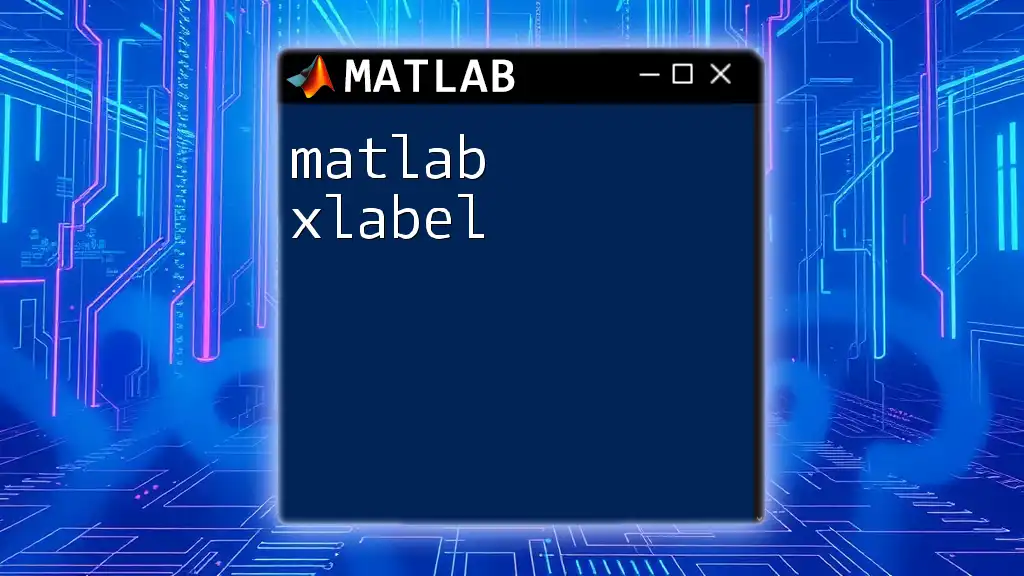
Practical Applications of MATLAB X
Data Analysis
MATLAB X is particularly powerful when it comes to data analysis, and it includes tools for statistical computations and visualizations.
For instance, you can perform simple linear regression:
x = [1 2 3 4 5];
y = [2 4 6 8 10];
coeff = polyfit(x, y, 1);
In this command, the coefficients for a linear fit are computed, allowing users to evaluate data trends effectively.
Signal Processing Techniques
MATLAB X also excels in signal processing. The Fast Fourier Transform (FFT) is a common operation used to analyze signal frequency components:
Fs = 1000;
t = 0:1/Fs:1-1/Fs;
y = sin(2*pi*100*t);
Y = fft(y);
This snippet generates a sine wave and computes the FFT, facilitating an understanding of frequency content.
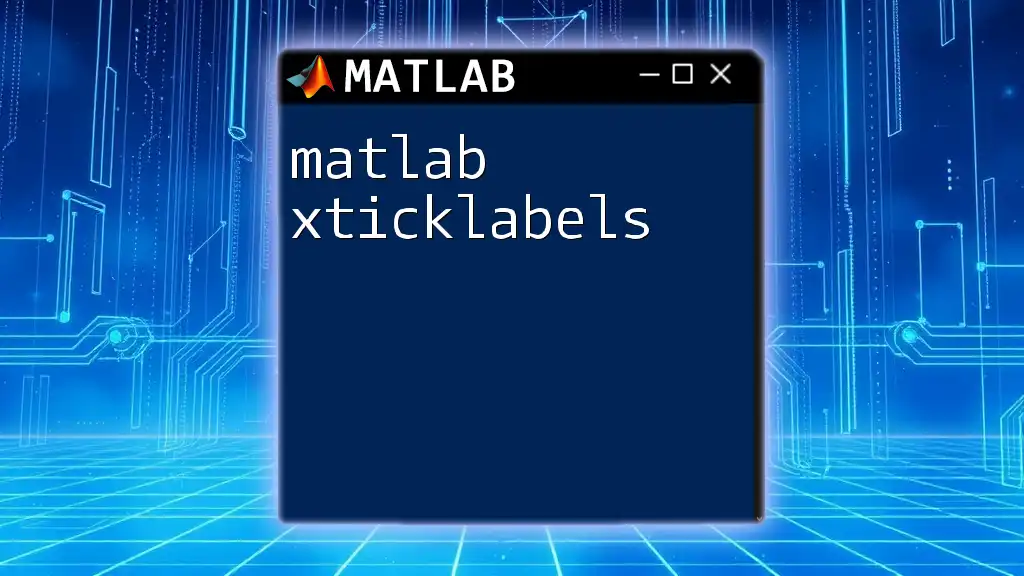
Tips and Best Practices
Efficient Coding Strategies
To write clean and efficient MATLAB X code, ensure you:
- Use meaningful variable names so that others (and you later) can understand the code's purpose.
- Divide complex scripts into smaller functions to enhance readability and maintainability.
Debugging Techniques
Debugging is an essential skill. Common issues in MATLAB X may include:
- Syntax errors due to typos or incorrect function calls.
- Logical errors that arise when the output does not match expectations. Utilizing built-in debugging tools, such as breakpoints and the "try-catch" structure, can help identify and resolve these issues promptly.
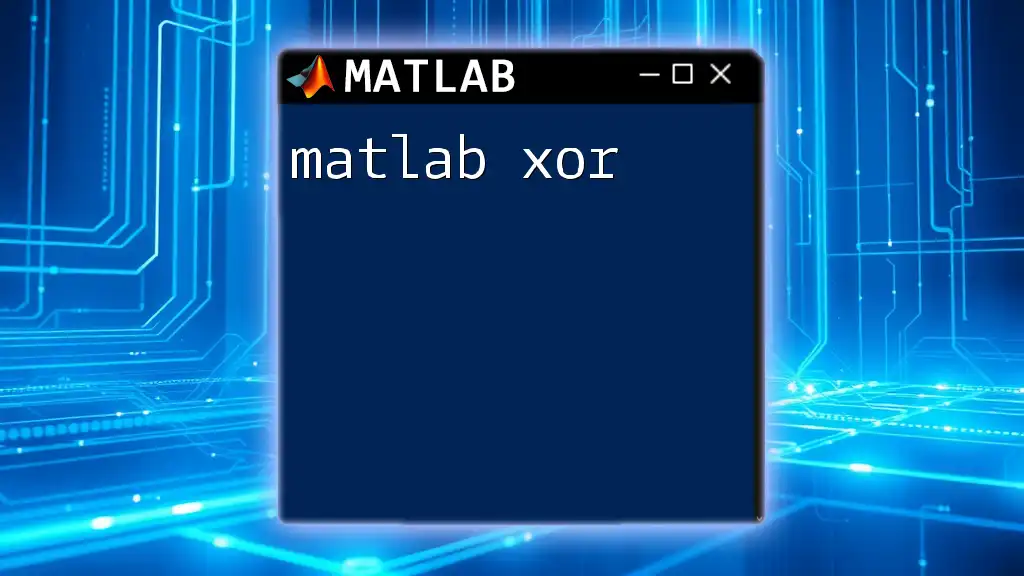
Resources for Learning More about MATLAB X
Recommended Books and Online Courses
To deepen your understanding of MATLAB X, consider exploring the following:
- Books: "MATLAB for Engineers" or "MATLAB: A Practical Introduction to Programming and Problem Solving."
- Online Courses: Platforms like Coursera, edX, and MATLAB's official website offer comprehensive courses catering to all skill levels.
Community and Forums
Engaging with the MATLAB community can facilitate growth and additional learning. Forums such as MATLAB Central allow users to ask questions, share interests, and collaborate on projects, enhancing the overall learning experience.

Conclusion
In summary, MATLAB X opens a world of possibilities for both beginners and experienced users. By mastering its commands—from basic outputs to complex functions—you equip yourself with powerful tools for solving real-world problems. Embrace practice, integrate what you've learned into your projects, and tap into the wealth of resources available to become proficient in MATLAB X. Now, you are encouraged to explore further and apply your knowledge effectively!

FAQ Section
Common Questions About MATLAB X
In this section, we'll answer frequently asked questions to clarify common uncertainties about navigating and utilizing MATLAB X effectively, ultimately empowering you to make the most of this versatile tool.













